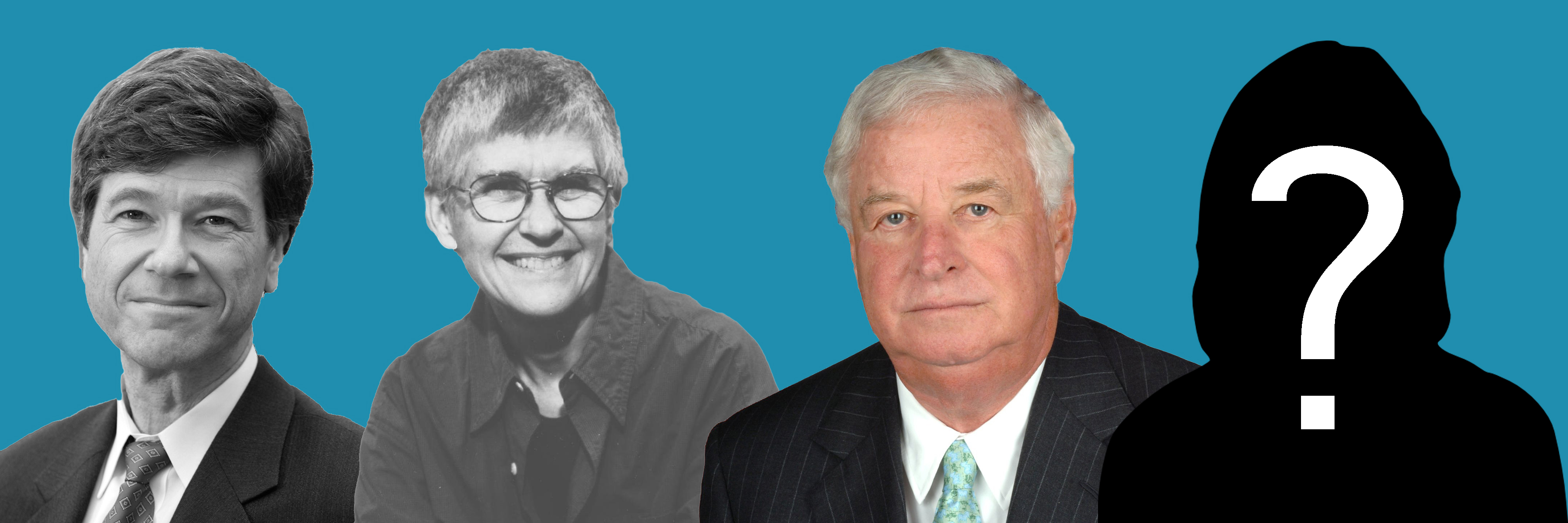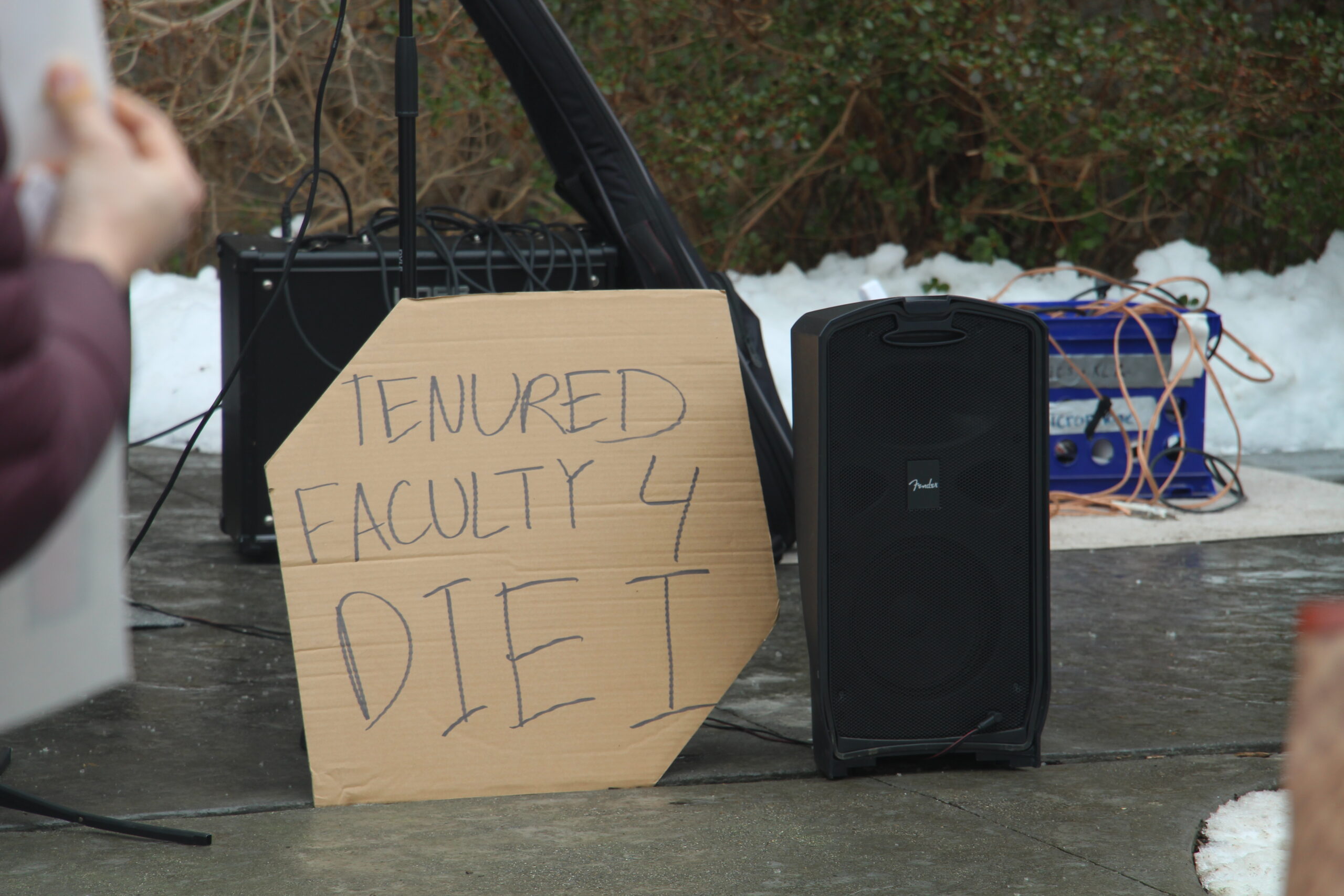In one short week, a petition calling for more student input in choosing Connecticut College’s commencement speaker has garnered signatures from over 230 students and alumni of the college. The petition comes after an ongoing dialogue among students concerning the choice of speaker for this year’s commencement, Louis B. Susman.
On December 11, 2011, President Lee Higdon sent the campus community an announcement that Susman would be the keynote speaker: “I have known Lou Susman since we were both at Salomon Brothers in the early 1980s, and I have followed his career trajectory with interest. Before becoming an investment banker, he practiced law for 27 years in St. Louis, and he has been active in public service for decades.”
Currently, Susman is the United States’ ambassador to the United Kingdom, a prestigious position that is typically appointed to diplomats. As a longtime member of the Democratic National Convention (DNC) who was nicknamed “the vacuum cleaner” for his ability to compel wealthy individuals to donate to the DNC, Susman was appointed to the position after raising funds for President Obama’s election campaign.
While proponents of Susman’s appointment argue that his background in finance and law would adequately prepare him for the position, others are more critical of the decision. Craig Holman, a government affairs lobbyist at a watchdog group called Public Citizen said, “Clearly his appointment has nothing to do with anything but money.” Others describe the appointment as cronyism at its finest.
According to the petition, which was written by Isaac Hancock ’12 and edited by Ann Daly ’12, “This practice is controversial among those who believe that money continues to be a corrupting influence in our political system.”
Prior to bundling close to $400,000 for Obama’s campaign and inauguration celebration, Susman worked on Wall Street as an investment banker with Connecticut College President Lee Higdon for Salomon Brothers, which later became Citigroup. Susman retired from the position of Vice Chairman of Citigroup Global Markets in 2009. The firm’s New York office is currently under investigation by the U.S. Securities and Exchange Commission for mortgage fraud, a criminal act that has contributed to the housing crisis in the United States.
“We do not think it is appropriate to invite a former leader of a corporation that is currently under investigation, or a man who has kept silent during the process,” states the petition.
One aspect of the petition that has received mixed responses is the point regarding Sally Susman ’84, an alumnus of the college and the daughter of Louis Susman. Sally Susman is the Executive Vice President and Policy Overseer at Pfizer, Inc., a corporation that played a key role in the Supreme Court’s 2005 decision in Kelo v. City of New London, an eminent domain case that sought to enhance Pfizer Inc.’s nearby corporate facility. After taking private property and effectively displacing many New London residents, the pharmaceutical corporation ultimately announced that it would close its New London headquarters, leaving neighborhoods condemned and vacant, and abandoning the promise of an economic revitalization of the city.
According to a New York Times article from 2009 written after Pfizer Inc. left New London, “[local residents] see Pfizer as a corporate carpetbagger that took public money, in the form of big tax breaks, and now wants to run.”
However the decision to include Sally Susman in the petition is fraught. One signatory stated, “I disagree about the importance of ‘family history’ in this case.” After receiving critique from students and the administration, Hancock wrote an addendum to the petition, stating, “it is important to note that Sally Susman (‘84) was not with Pfizer, Inc. at the time of the Supreme Court battle. Her inclusion was meant to show a family history of involvement with highly controversial corporate groups. I understand that the petition implies that Ms. Susman was involved in the conflict. I do not mean to slander her in any way.”
Dean Bengochea noted that one of the reasons Susman was chosen was because of the personal connection to the college through his daughter: “No one understands better than Ambassador Susman the value of a Connecticut College education,” he said.
Ultimately, however, the students who wrote the petition are not looking to find a different, more fitting speaker for this year’s commencement; instead, they call for more transparency in the process that chooses a speaker in the first place.
So, the question becomes: what is the process?
Dean Bengochea describes the process in five steps. First, there is a Commencement Speaker Selection Committee, made up of two faculty members, two staff, and up to five students. For the class of 2012, the committee was comprised of three students, Psychology Professor Ann Devlin, and Physics Professor Mohamed Diagne.
Second, the committee suggests potential speakers and solicits the class for additional candidates. Then, once a list emerges from that committee process, it is sent to the entire class as an e-mailed survey meant to gauge interest in the various candidates. The class of 2012 received this survey on November 30, 2010 with a list of thirteen possible speakers.
In addition to Susman, other speakers on the initial survey included Malcolm Gladwell, a staff writer with The New Yorker and bestselling author, Paul Farmer, a medical anthropologist who is founding director of an international non-profit that provides direct health care services and undertakes research and advocacy activities on behalf of those who are sick and impoverished, author Dave Eggers, who penned his famous memoir, A Heartbreaking Work of Staggering Genius, and Jay Lauf ‘86, an alumni of the college and the publisher and Vice President of The Atlantic Monthly.
Third, after considering the response from the class, the committee submits a final list of speakers to the president. Finally, the president discusses the list of candidates with senior administrators and invites a speaker.
According to Dean Bengochea, Susman was ultimately chosen because “he is very knowledgeable about American politics and world events, and as the parent of a Connecticut College graduate, he knows the college well. He can offer advice on many topics, including the role of educated young people in a global society and the value of a liberal arts education.”
Throughout this process, students can be involved in three ways. They can become part of the committee, can submit the names of potential speakers, and can vote in the survey. Unfortunately, the iteration, “but I voted for Dave Eggers!” is commonplace at Connecticut College right now, leaving many students feeling as though their voices were not heard throughout this process.
In order to change the process for the future, Hancock, Nick Rodricks ’12, and Karam Sethi ’12, appealed to Connecticut College student government at an open forum with a list of proposals on Thursday. Dean Bengochea stated, “As always, we’re open to suggestions about the process.” After the upset caused by Susman’s impending visit, the disappointingly irrelevant talk given at the 2011 commencement, and the revelation that student speaker Peter St. John’s speech was plagiarized in 2009, students agree that Connecticut College could stand to change its process.












I like this part ““the vacuum cleaner” for his ability to compel wealthy individuals to donate to the DNC, Susman was appointed to the position after raising funds for President Obama’s election campaign.”